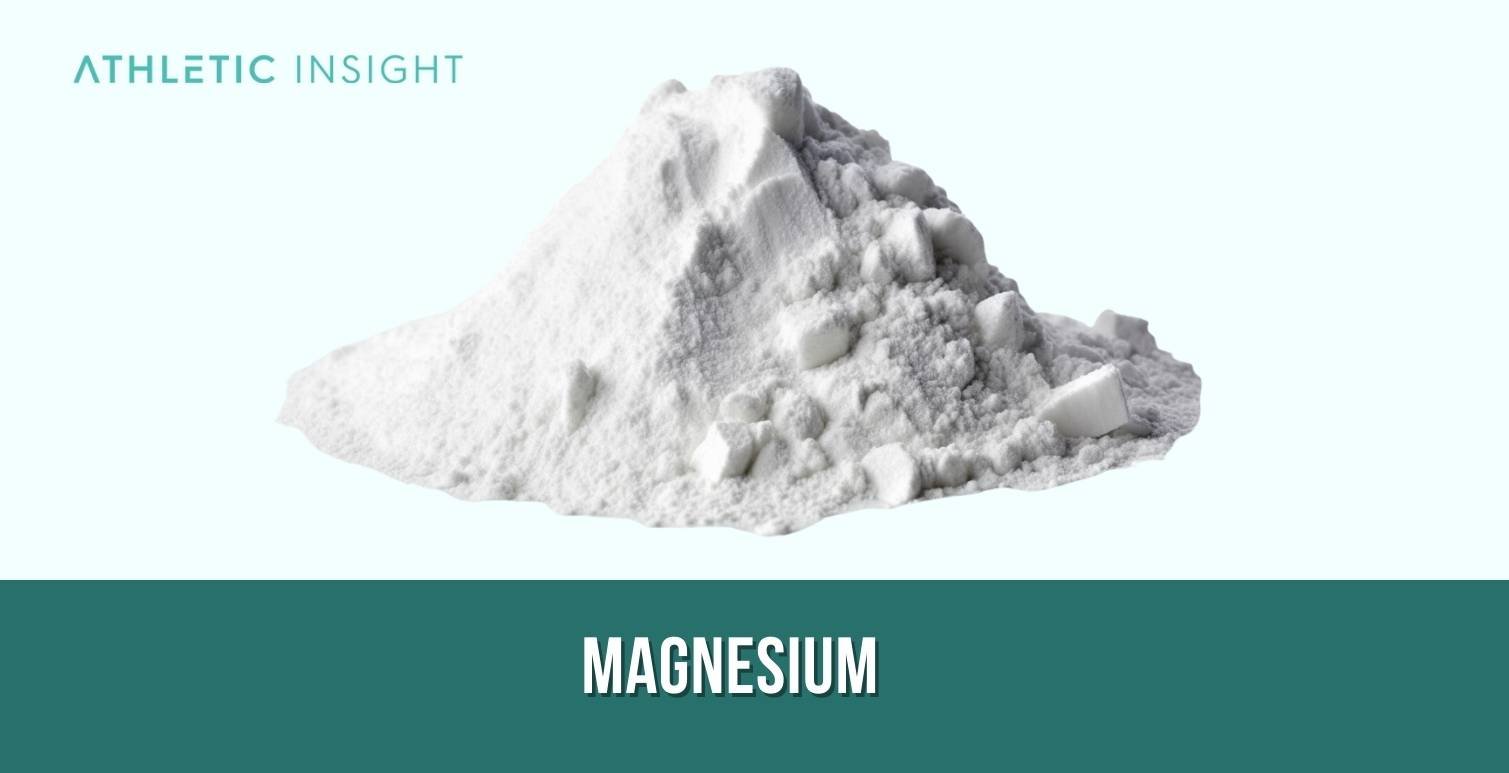When dealing with high blood sugar, certain dietary supplements can play a pivotal role in maintaining a balance. While proper diet is the first step to maintaining a healthy balance, supplementation is often suggested by doctors that specialize in treating patients with diabetes.
Some popular supplements that are used for high blood sugar levels includes magnesium, vitamin D, probiotics and Aloe Vera. However, there are many additional diabetes supplements as well. This article introduces you to the top 10 supplements that may help manage high blood sugar levels.
- Magnesium
- Vitamin D
- Probiotics
- Aloe Vera
- Cinnamon
- Berberine
- Chromium
- American Ginseng
- Gymnema
- Alpha-lipoic acid
1. Magnesium
Present in diverse incarnations such as magnesium oxide, magnesium citrate, and magnesium chloride, magnesium supplements offer a panoply of health benefits. This range of options provides an assortment of choices for the discerning consumer, each variant possessing its unique chemical properties and bioavailability.

The efficacy of magnesium supplements manifests in a multitude of ways. Routine consumption aids in maintaining equilibrium of blood glucose levels, which could mitigate the risk of diabetes onset. Yet, the advantages of magnesium extend beyond glycemic control. This dynamic mineral plays a pivotal role in neural function, muscular activity, and fortifying the body’s immune defenses, making it an indispensable component of a balanced diet.
Despite its numerous benefits, prudence is advised when ingesting magnesium supplements. Overindulgence can precipitate unwelcome repercussions such as gastrointestinal distress, characterized by symptoms like diarrhea, nausea, and abdominal cramping. As for the recommended dietary allowance, it fluctuates depending on factors such as age and gender, with an average range of 310-420 mg per day for the majority of adults.
The financial implications of purchasing these supplements can be disparate, influenced by brand reputation and the specific magnesium compound. Consumer feedback typically underscores an enhancement in holistic wellbeing and a subtle modulation of blood sugar levels, underscoring the overall value of incorporating magnesium supplements into one’s health regimen.
- Features: Magnesium supplements come in various forms, including magnesium oxide, magnesium citrate, and magnesium chloride.
- Effects: Regular intake of magnesium can aid in regulating blood sugar levels, reducing the risk of developing diabetes.
- Benefits: Alongside its potential to regulate blood sugar, magnesium also supports nerve function, muscle movement, and a healthy immune system.
- Side Effects: While generally safe, excessive magnesium can lead to diarrhea, nausea, and abdominal cramping.
- Usage: The recommended dietary allowance for magnesium varies by age and gender, but for most adults, it ranges from 310-420 mg per day.
- Cost Factors: The price of magnesium supplements can vary widely based on the brand and the form of magnesium.
- Reviews: Users often report a positive impact on overall health and a subtle effect on blood sugar levels.
2. Vitamin D
Vitamin D supplements come in two distinct variants: D2, also known as ergocalciferol, and D3, or cholecalciferol. These two compounds each offer a unique pathway to achieving the same goal – bolstering the body’s vitamin D levels.

The impact of regular vitamin D consumption is multifaceted. One of the primary effects is an enhancement in the body’s responsiveness to insulin, thereby aiding in the regulation of blood glucose levels. Nevertheless, the advantages of Vitamin D supplements are not confined to glycemic control. This essential nutrient plays a critical role in maintaining bone integrity and promoting a resilient immune system, underscoring its significance in overall health maintenance.
Despite the numerous health benefits, one must exercise caution when consuming vitamin D supplements. Overconsumption can lead to a condition known as hypercalcemia, marked by an overabundance of calcium in the bloodstream. The advised dietary allowance for most adults falls within a range of 600-800 IU per day.
The cost of these supplements is subject to fluctuations, contingent on the specific form of Vitamin D and the brand reputation. Consumer feedback often highlights an amelioration in overall health status, including a boost in mood and vitality levels, reinforcing the potential benefits of vitamin D supplementation.
- Features: Vitamin D supplements are available in two types: D2 (ergocalciferol) and D3 (cholecalciferol).
- Effects: Vitamin D improves the body’s sensitivity to insulin, thus helping control blood sugar levels.
- Benefits: Beyond blood sugar control, Vitamin D is essential for bone health and a robust immune system.
- Side Effects: While rare, excessive Vitamin D intake can lead to hypercalcemia, a condition characterized by too much calcium in the blood.
- Usage: The recommended dietary allowance for Vitamin D for most adults is 600-800 IU per day.
- Cost Factors: The price of Vitamin D supplements can vary, depending on the form and brand.
- Reviews: Many users report improved overall well-being, including a positive effect on mood and energy levels.
3. Probiotics
Probiotic supplements, available in a variety of formats such as capsules, powders, and liquid forms, provide a practical way to enhance gut health. The diversity in delivery methods caters to individual preferences, allowing for a personalized approach to probiotic supplementation.
The influence of probiotics on overall health is substantial. By impacting the gut microbiota, they can potentially enhance insulin sensitivity and contribute to the management of blood glucose levels. Beyond these metabolic benefits, probiotics play a crucial role in fostering a thriving digestive system and fortifying the immune system, emphasizing their value in a holistic health context.
While probiotics are generally well-tolerated, some people may experience minor digestive discomfort such as gas and bloating. As for the appropriate intake, there is no established uniform dosage for probiotics due to their vast diversity. Therefore, adherence to the instructions specified on the packaging is prudent.
The financial considerations associated with purchasing probiotic supplements are variable, influenced by factors such as the brand, the number and diversity of bacterial strains included, and the number of colony-forming units (CFUs).
Feedback from consumers often underscores improvements in gut health and digestion, with some individuals noting positive effects on their blood glucose management, attesting to the potential benefits of probiotic supplementation.
- Features: Probiotic supplements come in numerous forms, including capsules, powders, and liquid.
- Effects: Probiotics can impact the gut microbiota, potentially leading to improved insulin sensitivity and lower blood sugar levels.
- Benefits: Probiotics also promote a healthy digestive system and can boost the immune system.
- Side Effects: Some individuals may experience digestive side effects like gas and bloating.
- Usage: There’s no specific recommended dose for probiotics as they can vary enormously, it’s always best to follow the package instructions.
- Cost Factors: Probiotic supplements can range in price depending on the brand, number of strains included, and the number of colony-forming units (CFUs).
- Reviews: Users often report better gut health, improved digestion, and some mention beneficial effects on their blood sugar levels.
4. Aloe Vera
Aloe Vera supplements, typically presented in capsule or liquid form, provide the convenience of harnessing the plant’s health benefits in a simplified, accessible manner.

The potential effects of Aloe Vera supplements span various health domains. Preliminary research points to the ability of Aloe Vera to reduce insulin resistance and lower fasting blood sugar levels, particularly beneficial for individuals with type 2 diabetes.
Beyond glycemic control, Aloe Vera is renowned for its antioxidant and anti-inflammatory properties, contributing to its reputation as a versatile and potent health supplement.
While the majority of users tolerate Aloe Vera well, some may experience side effects like diarrhea and abdominal cramps. Therefore, it is imperative to adhere to the manufacturer’s dosage instructions, as the concentration of active ingredients may differ across products.
The cost of these supplements can fluctuate, contingent on the form of Aloe Vera and the brand’s reputation. Consumer testimonials often highlight a broad range of benefits, encompassing improved skin health, better digestion, and for some, a stabilization of blood sugar levels. These reviews underscore the multifaceted benefits of Aloe Vera supplements, affirming their place in a comprehensive health regimen.
- Features: Aloe Vera supplements are often available in capsule or liquid form.
- Effects: Some research suggests that Aloe Vera might help decrease insulin resistance and lower fasting blood sugar levels in people with type 2 diabetes.
- Benefits: Besides potential blood sugar regulation, Aloe Vera is known for its antioxidant and anti-inflammatory properties.
- Side Effects: In some cases, Aloe Vera may cause diarrhea and abdominal cramps.
- Usage: It’s crucial to follow the manufacturer’s instructions for dosage, as the concentration can vary between products.
- Cost Factors: The price of Aloe Vera supplements can vary depending on the form and brand.
- Reviews: Consumers often praise Aloe Vera’s holistic health benefits, including improved skin health and digestion. Some users also report a stabilizing effect on their blood sugar levels.
5. Cinnamon
Cinnamon, a popular spice, has been studied for its potential effects on blood sugar control. Available predominantly in capsule or powder form, cinnamon supplements offer an easy and convenient way to incorporate this potent spice into your daily regimen.
The potential impact of cinnamon on health is substantial. Foremost, it is recognized for its capacity to reduce blood sugar levels by improving insulin sensitivity. Beyond its role in glycemic management, cinnamon is also appreciated for its antioxidant and anti-inflammatory properties, further enhancing its value as a health supplement.
While cinnamon is generally safe for consumption in moderate quantities, excessive intake can potentially lead to liver damage. Therefore, it is crucial to adhere to the manufacturer’s dosage instructions, as the amount of active ingredient can differ between products.
Financial considerations associated with purchasing cinnamon supplements can vary, influenced by the form of cinnamon and the brand reputation.
Consumer feedback often highlights cinnamon’s subtle effect on blood glucose levels and its overall contribution to wellbeing. These testimonials reinforce the potential benefits of cinnamon supplementation in a comprehensive health regimen.
- Features: Cinnamon supplements typically come in capsule form or as a powder.
- Effects: Cinnamon may help lower blood sugar levels by decreasing insulin resistance.
- Benefits: Besides aiding in blood sugar control, cinnamon has antioxidant and anti-inflammatory properties.
- Side Effects: Consumed in moderation, cinnamon is generally considered safe. However, high doses may lead to liver damage.
- Usage: The amount of cinnamon may vary by product, so it’s crucial to follow the manufacturer’s instructions.
- Cost Factors: The cost of cinnamon supplements can range, depending on the form and brand.
- Reviews: Users often acknowledge cinnamon’s ability to subtly lower blood sugar levels and its beneficial impact on overall well-being.
6. Berberine
Berberine supplements, predominantly offered in capsule form, provide a potent and convenient method to harness the health benefits of this bioactive compound. When considering the best berberine supplements, it is important to choose a brand that in clinically backed and focused on producing quality products such as Thorne.

The potential health effects of berberine are robust and multifaceted. Research indicates that berberine may contribute to lower blood sugar levels and enhanced insulin sensitivity, key factors in the management of metabolic health. In addition to its role in blood sugar regulation, berberine has been associated with improved cardiac health and cholesterol levels, further emphasizing its utility in promoting overall wellness.
Despite its numerous benefits, berberine consumption might lead to certain side effects in some individuals, including constipation, diarrhea, or stomach cramps. The recommended dosage of berberine can vary, typically ranging from 900 to 2000 mg per day, divided into multiple doses to optimize absorption and efficacy.
The cost of berberine supplements can be influenced by various factors such as the brand reputation and the dosage per capsule. Consumer testimonials often highlight significant enhancements in blood sugar control and reductions in cholesterol levels, attesting to the potential benefits of berberine supplementation in a comprehensive health regimen.
- Features: Berberine supplements generally come in capsule form.
- Effects: Studies suggest that berberine can help lower blood sugar and improve insulin sensitivity.
- Benefits: Berberine also has been linked to improved heart health and cholesterol levels.
- Side Effects: Potential side effects include constipation, diarrhea, or stomach cramps.
- Usage: The recommended dose can vary, but ranges from 900 to 2000 mg per day, divided into multiple doses.
- Cost Factors: The price of berberine supplements can vary based on the brand and dosage per capsule.
- Reviews: Many users report significant improvements in blood sugar control, along with a reduction in cholesterol levels.
7. Chromium
Chromium supplements, which can enhance the body’s utilization of insulin, offer a potential method for improving blood glucose management. This trace mineral might provide a subtle yet important boost to your health regimen.
In addition to the potential for improved glycemic control, chromium is implicated in metabolic processes and is instrumental in the conversion of nutrients into energy. Thus, its benefits extend beyond just blood sugar regulation, touching upon various facets of overall wellness.
While chromium supplements are generally considered safe for consumption, they may trigger side effects in some individuals, such as headaches, insomnia, or mood changes. The adequate intake for chromium varies, with a typical range for most adults falling between 20-35 mcg per day.
Financial considerations associated with purchasing chromium supplements can be influenced by a number of factors, including the form of chromium, brand reputation, and dosage per capsule.
Consumer feedback often underscores a positive effect on blood sugar control. Interestingly, some users note a reduction in sugar cravings, suggesting an additional potential benefit of chromium supplementation. These testimonials highlight the multifaceted role of chromium in health maintenance and disease prevention.
- Features: Chromium supplements come in several forms, including chromium picolinate, chromium chloride, and chromium nicotinate.
- Effects: Chromium might help improve blood sugar control by enhancing the way our bodies use insulin.
- Benefits: In addition to potential blood sugar regulation, chromium can support metabolism and aid in nutrient conversion.
- Side Effects: Chromium is generally considered safe, but in some people, it might cause side effects such as headache, insomnia, or mood changes.
- Usage: The adequate intake for most adults ranges from 20-35 mcg of chromium per day.
- Cost Factors: The price of chromium supplements can vary depending on the form, brand, and dosage per capsule.
- Reviews: Users often report a positive impact on their blood sugar control, with some noting a decrease in sugar cravings.
8. American Ginseng
American Ginseng supplements, typically available in capsule or powder form, as well as in tea, offer an accessible way to integrate this potent herb into your wellness routine.

The potential health impacts of American Ginseng are manifold. Research suggests that it may contribute to lowering blood sugar levels, both in fasting states and postprandially, offering a valuable tool in glycemic management. Beyond its potential role in blood sugar regulation, American Ginseng is lauded for its immune-boosting properties and its ability to mitigate stress, further enhancing its health-promoting profile.
While American Ginseng is generally safe for consumption, some individuals may experience side effects such as headaches, insomnia, or digestive disturbances. Given the variance in concentration between different products, it’s prudent to follow the manufacturer’s dosage instructions.
The cost of American Ginseng supplements can fluctuate, influenced by factors such as the form of the supplement, the brand reputation, and the quality of the ginseng. User testimonials often highlight the herb’s energy-boosting effects and broad health benefits, with some noting improvements in blood sugar management. These reviews underscore the potential benefits of incorporating American Ginseng into a comprehensive health and wellness regimen.
- Features: American Ginseng supplements usually come in capsule or powder form, and sometimes as a tea.
- Effects: Some research suggests that American Ginseng might help lower blood sugar levels, both in fasting states and after meals.
- Benefits: Beyond potential blood sugar control, American Ginseng is often used for its ability to boost the immune system and reduce stress.
- Side Effects: While generally considered safe, it may cause headaches, insomnia, or digestive issues in some individuals.
- Usage: It’s crucial to follow the manufacturer’s instructions for dosage, as the concentration can vary between products.
- Cost Factors: The price of American Ginseng supplements varies depending on the form, brand, and quality of the ginseng.
- Reviews: Users often acknowledge American Ginseng for its energy-boosting effects and overall health benefits. Some also report improved blood sugar management.
9. Gymnema
Gymnema Sylvestre, a therapeutic herb used in Ayurvedic medicine, is offered primarily in capsule, tablet form, and occasionally as a tea.

The potential health effects of Gymnema are substantial. This herb is known for its ability to lower blood sugar levels, achieved by promoting insulin production and enhancing the cellular uptake of glucose. In addition to its potential role in glycemic control, Gymnema has a unique characteristic: it can suppress the taste of sweetness, potentially aiding those who struggle with sugar cravings.
While Gymnema is generally well-tolerated, some individuals may experience side effects such as headaches, nausea, or dizziness. The dosage recommendations for Gymnema can vary, with studies often employing doses ranging from 200-400 mg per day.
Financial considerations associated with purchasing Gymnema supplements can fluctuate based on factors such as the brand reputation and the dosage per capsule or tablet. Feedback from consumers often highlights a decrease in sugar cravings and improvements in blood sugar control, underscoring the potential benefits of Gymnema supplementation in a comprehensive health management strategy.
- Features: Gymnema supplements typically come in capsule or tablet form, and sometimes as a tea.
- Effects: Gymnema may help lower blood sugar levels by promoting insulin production and enhancing the uptake of glucose into cells.
- Benefits: Along with potential blood sugar regulation, Gymnema is known for its ability to suppress sweet tastes, which could help with sugar cravings.
- Side Effects: Gymnema is generally well-tolerated, but it can cause side effects like headache, nausea, or dizziness in some cases.
- Usage: Dosage recommendations can vary, but studies often use doses ranging from 200-400 mg per day.
- Cost Factors: The cost of Gymnema supplements can vary based on the brand and the dosage per capsule or tablet.
- Reviews: Many users report a decrease in sugar cravings and improvements in blood sugar control after using Gymnema.
10. Alpha-lipoic acid
Alpha-lipoic acid supplements, typically available in capsule form, provide a potent and convenient way to incorporate this powerful antioxidant into your daily health regimen.

The health implications of alpha-lipoic acid are wide-ranging. It is recognized for its ability to lower blood sugar levels by enhancing insulin sensitivity and reducing inflammation, key considerations in managing metabolic health. Beyond its role in glycemic control, alpha-lipoic acid is also known to support nerve health, a benefit that can be particularly advantageous for individuals dealing with diabetic neuropathy.
While alpha-lipoic acid is generally well-tolerated, some individuals may experience side effects such as stomach upset or skin rashes. The dosage recommendations for alpha-lipoic acid can vary, with a common suggestion being 600-800 mg per day. However, it’s always prudent to adhere to the manufacturer’s instructions.
The cost of alpha-lipoic acid supplements can be influenced by factors such as brand reputation and the dosage per capsule. User testimonials frequently highlight the positive effects of alpha-lipoic acid on nerve health, with some noting improvements in blood sugar control. These reviews underscore the potential benefits of alpha-lipoic acid supplementation in a holistic health strategy.
- Features: Alpha-lipoic acid supplements generally come in capsule form.
- Effects: Alpha-lipoic acid can help lower blood sugar levels by promoting insulin sensitivity and reducing inflammation.
- Benefits: Besides potential blood sugar control, alpha-lipoic acid can support nerve health, which can be beneficial for those with diabetic neuropathy.
- Side Effects: Alpha-lipoic acid is typically well-tolerated, but it may cause side effects like stomach upset or skin rashes in some cases.
- Usage: A common dosage recommendation is 600-800 mg per day, but it’s best to follow the manufacturer’s instructions.
- Cost Factors: The price of alpha-lipoic acid supplements can vary based on the brand and the dosage per capsule.
- Reviews: Users often praise alpha-lipoic acid for its effects on nerve health, and some report improvements in blood sugar control.
What are High Blood Sugar Supplements?
High blood sugar supplements are a category of dietary supplements that have been researched for their potential ability to help control blood sugar levels. These supplements include a range of vitamins, minerals, herbs, and other compounds, each with unique mechanisms that may influence blood sugar control, insulin sensitivity, or both.
It’s important to note that while these supplements can support blood sugar control, they are not a replacement for a healthy diet, regular exercise, and prescribed medication.
What Do High Blood Sugar Supplements Do?
High blood sugar supplements aim to assist the body’s natural mechanisms for maintaining healthy blood sugar levels. They work by enhancing insulin sensitivity, stimulating insulin production, reducing the absorption of sugar in the gut, or through other mechanisms depending on the specific supplement. These effects can help prevent blood sugar spikes and dips, promoting more stable blood sugar levels throughout the day.
Who Should Take Supplements for High Blood Sugar?
Individuals with prediabetes, diabetes, or those at risk of developing these conditions might consider taking supplements for high blood sugar. However, everyone’s body responds differently, so what works for one person may not work for another. It’s always best to consult with a healthcare provider before starting any new supplement regimen.
How to Choose the Best Supplements for High Blood Sugar?
When selecting a supplement for high blood sugar, consider the scientific evidence supporting its use, the supplement’s quality, potential side effects, form and dosage, cost, reviews, and professional input.
- Scientific evidence: Look for supplements with well-documented research demonstrating their effectiveness in managing blood sugar levels. The stronger the evidence supporting a supplement’s use, the more likely it is to provide benefits.
- Quality: Opt for high-quality supplements from reputable manufacturers. Look for third-party testing and certification to ensure purity, potency, and safety.
- Potential side effects: Evaluate the possible side effects of each supplement, and weigh the risks against the benefits. Always consult your healthcare provider, especially if you’re on medication or have pre-existing conditions.
- Form and dosage: Choose a supplement in a form that is easy for you to consume and with a dosage that aligns with research-backed recommendations or guidelines from your healthcare provider.
- Cost: Compare prices of different brands and forms of supplements to find one that fits your budget while still maintaining quality and effectiveness.
- Reviews: Read user reviews and testimonials to gauge the experiences of others using the supplement. Keep in mind that individual experiences can vary, but this can provide some insight into its potential benefits.
- Consult a professional: Speak with your healthcare provider or a registered dietitian for personalized guidance on choosing the most appropriate supplement for your needs. They can help you determine the best options based on your medical history, lifestyle, and unique circumstances.
Remember that supplements are not a substitute for a healthy diet, regular exercise, and prescribed medications. They should be used as an additional tool to help manage high blood sugar levels alongside a comprehensive health plan.
Are Supplements for High Blood Sugar Effective?
Yes, supplements for high blood sugar can be effective, but the effectiveness can vary widely from person to person. It’s important to remember that while some supplements might aid in blood sugar control, they should not be seen as a replacement for a balanced diet, regular exercise, and prescribed medication.
Also, the FDA doesn’t regulate supplements in the same way they regulate medicines, so quality can vary from product to product. For that reason, it is important to choose a safe and science-backed supplement like Thorne.



